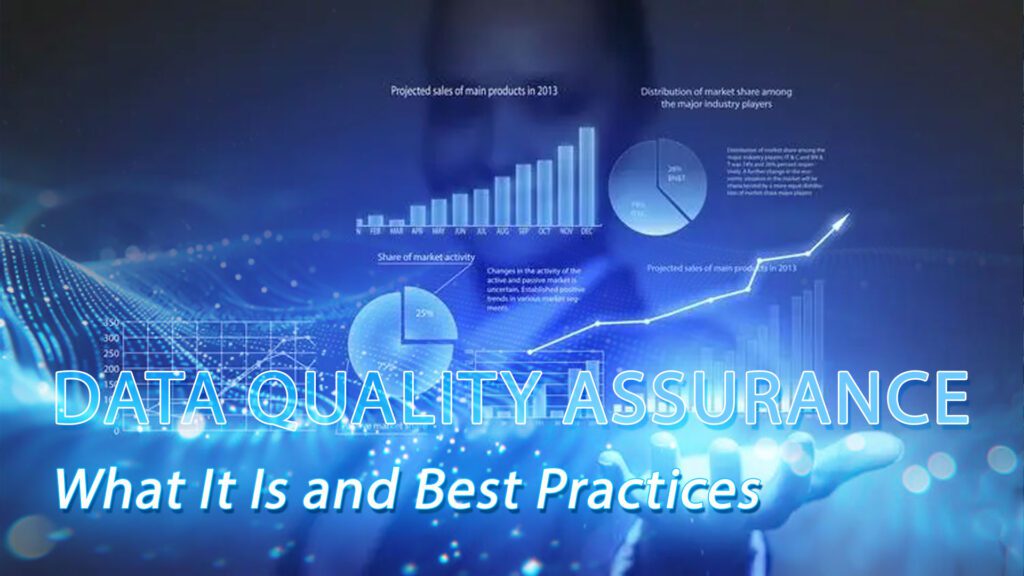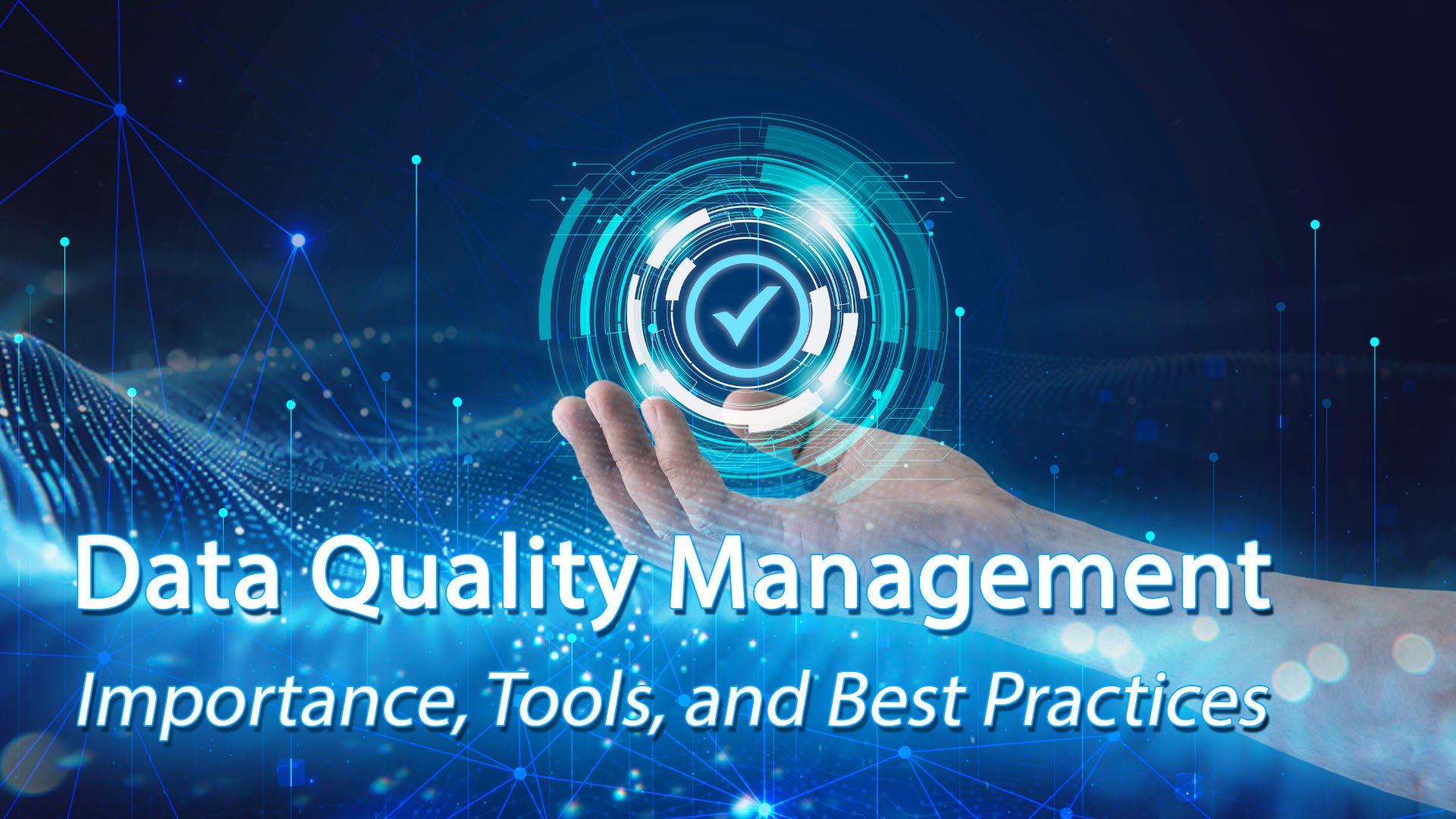Data – a valuable asset of businesses – is facing many problems, in addition to data security, data is also affected by the quality it brings. It can be understood that data is only truly valuable when it is accurate and reliable.
This is when the concept of data quality assurance becomes extremely important. An effective data quality assurance process not only helps businesses make informed decisions but also optimizes operations. This article DIGI-TEXX will delve into data quality assurance, distinguish it from related concepts and guide how to deploy an effective process for businesses.

What Is Data Quality Assurance?
Data quality assurance is a set of systematic processes and activities to ensure that data in an organization meets consistent quality standards, including accuracy, completeness, timeliness and consistency.
It can be understood that the main goal of data quality assurance is not to correct poor quality data after it has been created, but to prevent the occurrence of quality problems in the first place.
Important goals of data quality assurance include:
- Detect and eliminate data errors as early as possible.
- Improve data creation and processing processes.
- Identify the root causes of data quality problems.
- Ensure data conforms to business standards and requirements.

Data Quality vs. Data Quality Assurance
Despite having similar names, data quality and data quality assurance are two different concepts. Next, we will distinguish between these two concepts:
- Data quality is the final result. This concept refers to the state of data, showing the level of reliability and suitability for use. Data quality measures include accuracy, completeness, consistency, timeliness and uniqueness.
- Data quality assurance is a concept to describe a process, that process is a set of proactive, systematic activities to prevent and ensure that data achieves the desired quality. The steps of this process focus on establishing standards, processes, and checks to maintain data quality.
In short, it should be clearly distinguished that data quality is a concept that refers to the state of the data, while data quality assurance is about the activities and processes to achieve that quality.

Key Components Of Data Quality Assurance
A comprehensive data quality assurance process typically includes several core components that work together to ensure data quality. Here are the key elements:
- Data Profiling: This is the step of analyzing data to understand the structure, content, and quality of the data. Data profiling helps identify potential problems such as missing values, inconsistent formats, and outliers.
- Data Cleansing: After identifying problems, data cleansing is the process of adjusting or removing erroneous, incomplete, inaccurate, or irrelevant data.
- Data Validation: This is the process of examining data to ensure it complies with predefined business rules and constraints.
- Monitoring and Reporting: Continuously monitoring data quality metrics and generating periodic reports are critical to tracking the effectiveness of the data quality assurance process and identifying emerging trends or issues.
- Data Governance: Data governance is the framework for managing data across an organization. This step in the process involves establishing policies, roles, and processes to ensure that data is handled responsibly and consistently. A data quality assurance analyst should have a solid understanding of data governance.
- Auditability: This element describes that an effective data quality assurance system should be able to track the origin and change history of data, helping to identify the root cause of quality issues.

Why Businesses Need Data Quality Assurance
Data quality assurance is not just a theoretical concept but a vital element for modern businesses if they want to ensure that all their data is valuable.
When implemented correctly and sufficiently, data quality assurance can bring many strategic benefits, especially helping organizations overcome challenges related to poor quality data.
- Make better decisions: Poor quality data can lead to poor decisions, waste resources, and undermine competitive advantage. By ensuring data is accurate and reliable, data quality assurance helps business leaders make better, more effective decisions.
- Optimize operations: Inconsistent and inaccurate data can disrupt business processes, wasting time and effort. A good data normalization process optimizes processes from sales and marketing to manufacturing and supply chain management.
- Reduce risk: In industries such as finance and healthcare, incorrect data can lead to serious compliance risks and legal issues. A consistent and complete data process helps businesses comply with regulations and industry standards, minimizing legal and financial risks.
- Improve Customer Experience: Inaccurate customer data can lead to ineffective marketing campaigns and poor customer service. Having data quality assurance ensures that customer data is accurate and complete, which helps businesses personalize experiences and build lasting relationships with customers.

How to Implement a Data Quality Assurance Process?
Implementing an effective data quality assurance process requires a clear strategy and commitment from the entire organization. Here are the steps to take, make sure your organization is ready to take these steps.
- Define the goals and scope: First, businesses need to define the goals of data quality assurance. Which data is most important? What quality issues need to be addressed first?
- Assess current data quality: Conduct data profiling to get a comprehensive view of current data quality. This step helps identify specific issues and where the data is being collected from and the main sources of the data.
- Establish data quality rules: Based on the defined goals, establish clear rules for data validity. These rules should be specific and measurable.
- Implement tools and automation: Use dedicated data quality assurance tools to automate data checking, cleaning, and monitoring. This helps reduce human error and increase efficiency.
- Establish continuous monitoring processes: Data quality is not a one-time project. Businesses need to establish continuous monitoring processes to track data quality metrics and report emerging issues.
- Build a data culture: Promote a culture where every employee understands the importance of data quality and takes responsibility for the data they create.

Best Practices for Successful DQA Implementation
To successfully implement a successful process, businesses should apply some of the best practices below – content summarized from successful businesses that have gone before.
- Start small: Instead of trying to solve all data quality issues at once, start with a small pilot project. This helps pioneer members learn and adjust the process before expanding to the entire organization.
- Clearly define roles and responsibilities: Assign a data quality assurance analyst or a team to be responsible for these standards. Make sure everyone understands their role in maintaining data quality.
- Integrate data quality assurance into the workflow: The process and related elements should be integrated into the daily data collection, processing and analysis process, rather than being a separate activity.
- Use automation tools: Automated data quality assurance tools help reduce manual effort and ensure that data quality checks are performed consistently and efficiently.
- Measure and report: Set up key performance indicators (KPIs) to measure data quality and report results regularly to stakeholders.

Data Quality Assurance Use Cases
Data quality assurance has broad applications across many industries, providing specific benefits for each.
- Finance: Data quality assurance ensures the accuracy of transaction data, customer information, and regulatory compliance data. This helps financial institutions comply with complex regulations such as GDPR and Basel III, while minimizing financial risk.
- Healthcare: In healthcare, accurate data is vital. Data quality assurance will ensure the integrity of electronic medical records, clinical research data, and insurance information, thereby improving the quality of care and safety for patients.
- E-commerce: Accurate product data, customer information, and purchase history are essential to optimize the customer experience. For e-commerce, Data quality assurance will help ensure complete product information, accurate pricing, and reliable customer data for personalized marketing campaigns.
- AI/ML (Artificial Intelligence/Machine Learning): AI and ML models rely heavily on the quality of training data. Dirty data will lead to erroneous results. At this point, the data process ensures clean, accurate, and relevant data input to build effective AI/ML models.

Data Quality Assurance vs Data Quality Control
The difference between data quality assurance and data quality control is often confusing because they have certain similarities. But they play different roles in data quality management.
Data quality assurance can be understood as a proactive and preventive approach. Data quality assurance focuses heavily on establishing processes, standards and systems to prevent data quality problems from arising in the first place.
On the other hand, data quality control is more of a corrective and reactive approach, focusing on identifying and correcting data errors that already exist in the system.
However, both data quality assurance and data quality control are essential to a comprehensive data management strategy. While data quality assurance helps to reduce the number of errors, data quality control helps to deal with errors that have slipped through the preventive filter.
Conclusion
Data quality assurance is not just a technical term but an essential strategy to help businesses develop sustainably in today’s competitive business environment. By establishing a methodical process, businesses can ensure that their data is always accurate, reliable and ready to serve strategic decisions.
To optimize the data analysis process and achieve the highest efficiency, investing in data quality assurance is an indispensable step. DIGI-TEXX, with many years of experience in the field of data processing and analysis, will be a reliable partner to help your business build and maintain a strong data quality assurance system. Contact us today for detailed advice and support.
=> Explore more:


